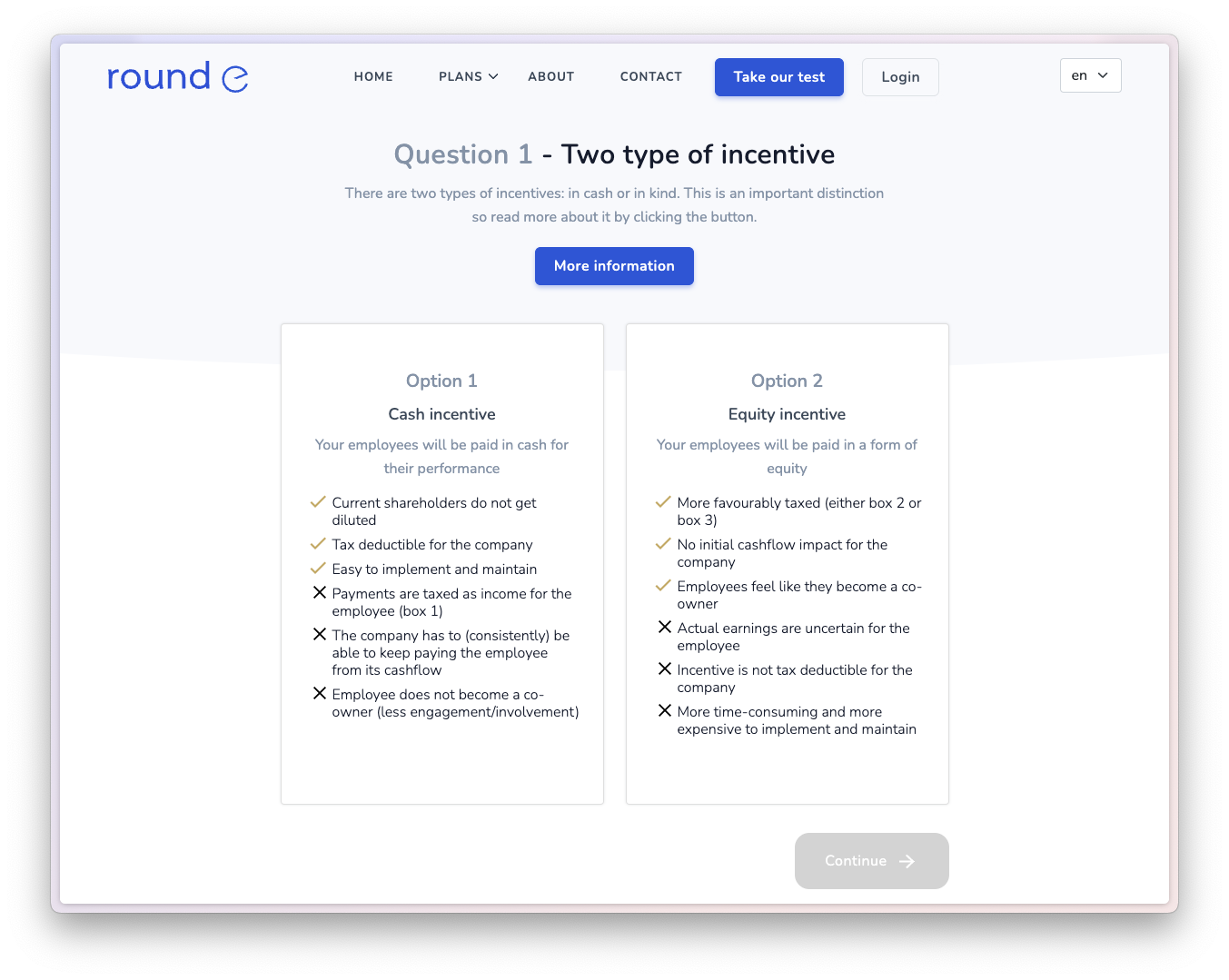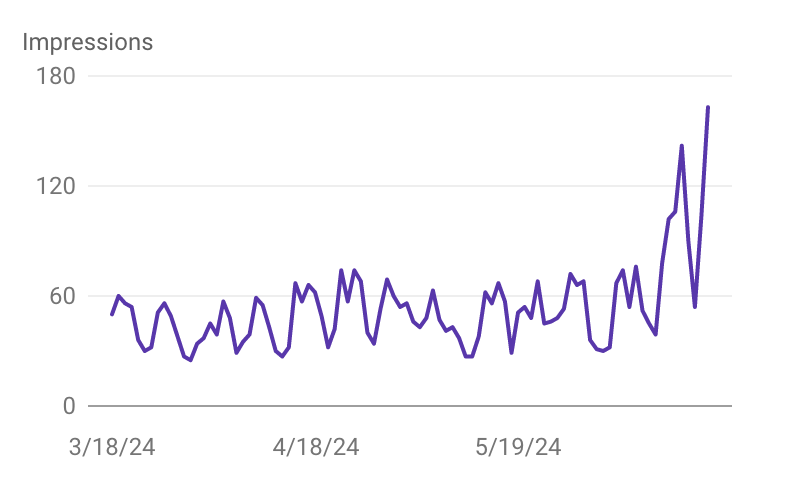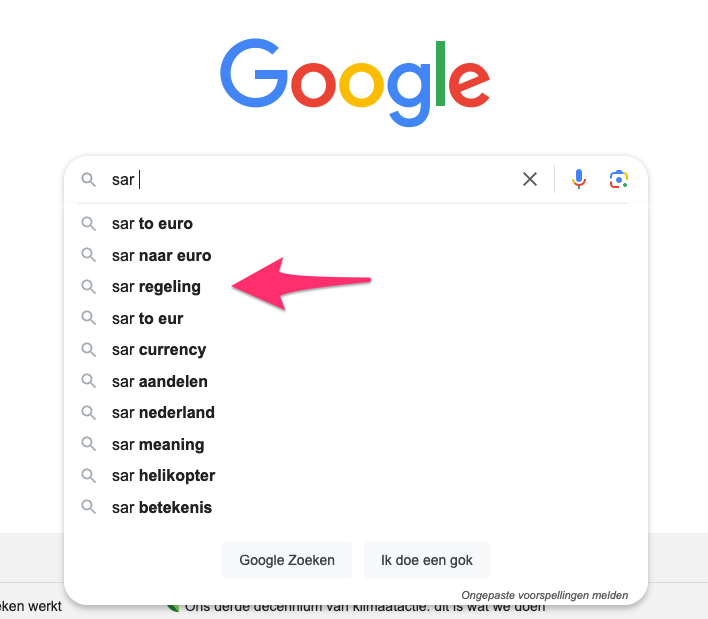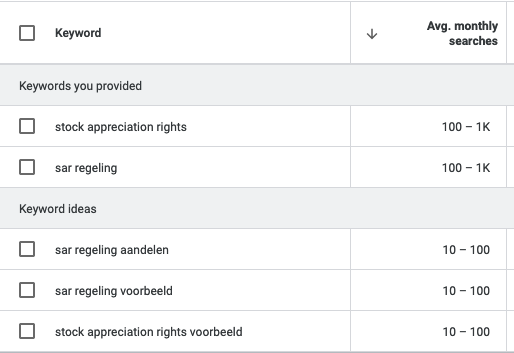🚀 How we grew Google impressions for our niche site by 360% in two weeks (and they’re still increasing)
TLDR (we explain in detail how you can do it yourself)
- Backlinks
- Keyword optimization
- High-quality blog posts with ChatGPT
Introduction
A couple of years ago, we started RoundE.nl, StakOprichten.nl & StockAppreciationRights.nl. RoundE helps companies set up employee participation plans. Think about share plans, option plans, stock appreciation rights, etc.
The idea is to let employees participate in the upside of the business, so they become more involved.
There is a lot of information online about participation plans, but no website was really guiding companies to the best solution for them.
So we created:
- A lot of great content about each plan.
- A comprehensive questionnaire (survey) where we guide companies to a plan that might suit them.

Steadily we got visitors, and clients could find us more easily. But it wasn’t anything major, as you can see in the graph below from Google Search Console.

How we improved SEO
Two weeks ago, we decided to start improving our SEO. We had always focused on great content but hadn’t focused too much on making it easily discoverable for Google.
We improved three aspects of our site:
- Backlinks
- Keywords
- Blogs
Backlinks
We realized we didn’t have great backlinks, so we created some backlinks from other sites we own. However, these were outside of the niche RoundE plays in.
Therefore, we needed more high-quality backlinks. We used Ahref’s free "backlink checker" tool (https://ahrefs.com/backlink-checker) to find out where our competitors were getting backlinks from. Then, we emailed these site owners to ask whether they could also add us to their page.
Some refused, but others added us directly to the page, improving our domain authority score.
This is not only great because we got a backlink, but we got a backlink on the same page where our competitors are mentioned. This means that it becomes easier for Google to associate us with the niche we are active in.
To increase this even further, we also made a blog post where we wrote comparisons between all the players in the market and linked to their pages as well. Of course, this means people could click from our page to our competitors, but this way, we also tell Google that we are in the same niche.
Keywords
We wrote great content, but we didn’t focus too much on mentioning keywords that people use in Google. We improved this in two main ways:
- Our homepage didn’t mention "medewerkersparticipatie" or "werknemersparticipatie" (this translates to employee participation), whereas these are the two most important keywords. We added these keywords to our H1 and H2 tags on our home page (and other pages).
- Next, we started looking into the SEO of specific plans we sell.
When typing in "SAR" in Google, we first get some results about currencies. But the third result is "SAR regeling". So apparently, that is what people will search for.
Using Google Ads (https://ads.google.com/), you can see how many monthly searches a keyword gets. Looking for "SAR regeling", we noticed quite a few people are searching for it (1000 searches a month is quite high in our niche). Thus, we decided to add this to the H1 and H2 tags on that page. We went from position 40 in Google to position 9 within two weeks for that keyword.


Blogs
In the past, we had experimented with writing blogs with ChatGPT, but the results were never great. The articles were superficial, without depth and not helpful for visitors.
So we decided to experiment a bit. Instead of asking ChatGPT to write an article, we first asked ChatGPT to write an outline of the article. After we were satisfied with the outline, we asked ChatGPT to write an article based on the outline.
This considerably improved the blog posts. But we could do better.
Therefore, we wrote a simple script that first generates an outline based on our keyword. After the outline, we ask GPT to just write a paragraph based on the first item in the outline. After GPT has written that, we give it its previous paragraph, and ask it to write the next paragraph based on the outline, etc.
Now, we get long paragraphs with in-depth information. The articles aren’t perfect and still require some manual editing (including adding links to other pages on our site), but it saves us 95%+ time compared to writing the articles from scratch.
Normally, you have to wait a couple of days or weeks before Google indexes your sites. But we make use of this clever tool: Google Indexing Script. It sends all your URLs to Google’s indexing API, and instead of waiting for days/weeks, links are indexed within hours.
The first results are great. We can quickly write articles tailored to niche keywords and easily rank high.
Next steps
Although the impressions in Google have skyrocketed, the number of clicks hasn’t increased as fast. That is our next point of focus.
Do you need help with SEO?
What improvements helped you to grow your Google exposure? Let us know in the comments.
About Coding Delta
We are a boutique software development company, turning your ideas into reality. Please get in touch to discuss your ideas.